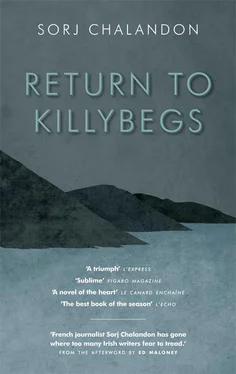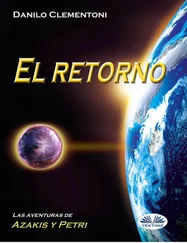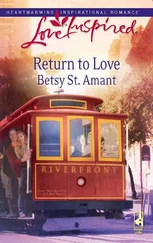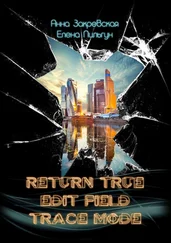My uncle was broken. I had never seen him like that. With his back against an orange streetlight, he was staring down at his shadow on the ground. He seemed indifferent to everything. A few men surrounded him. One of them placed a hand on his shoulder. Lawrence had brought us out of the inferno. And now that we were saved, he was trying to pull himself together. He was cold and afraid. His face was covered in grime and soot, like when he came home from work after battling chimneys. He was alone. He had lost everything.
Tom put the mattress down in a corner of the room. He had carried it on his own in the end and I had followed him. I looked at our new street, the neighbours’ faces, the reassuring Virgins against the frozen windows.
— It’s not big, but you’ll be able to breathe here, Tom said.
The guy had his fists on his hips. He was looking everywhere at once, as though surveying the street.
— There’s no need to be afraid of anything here, isn’t that right? my mother asked him.
Tom smiled. Here? Nothing would ever happen to us here. We were at home, in the heart of the ghetto. Protected by our numbers and our anger.
— And also by the IRA, our host added.
The IRA. I shuddered. Lawrence noticed. He shrugged and asked me to help him carry the table instead of standing around with empty hands.
The IRA. No longer three black letters, painted in a hateful smear across our wall. No longer a condemnation heard on the radio. No longer something to be afraid of, an insult, the devil’s other name. Now it was a hope, a promise. It was my father’s flesh, his entire life, his memory and his legend. It was his pain, his loss, the defeated army of our country. I’d never heard those three letters uttered by any lips but his. And here was a strapping young lad daring to smile about them in the middle of a street.
The IRA. Suddenly, I saw them everywhere. In that guy smoking a pipe and carrying blankets. Those women in shawls who wrapped us in their silence. That old man crouching on the pavement repairing our oil lamp. I saw it in the lads who were helping to ease our exile. I saw it behind every window, every curtain pulled to mislead the planes. I saw it in the air that was thick with turf smoke, in the day that was breaking. I felt it within me. In me, Tyrone Meehan, sixteen years old, son of Padraig and of Ireland’s soil. Chased from my village by misery, banished from my neighbourhood by the enemy. The IRA, me.
I offered Tom my hand. Like two men shaking on a deal. He looked at it, looked at me and hesitated.
And then he smiled once more. His palm was freezing, his fingers firm.
— Tyrone Meehan, I said.
We were in the middle of the street. I would have liked to have seen myself at that moment. I felt certain that this outstretched hand was my first manly gesture.
— Tom Williams.
He looked at me for a moment and then added:
— Lieutenant Thomas Joseph Williams, C Company, 2nd Battalion of the Belfast Brigade in the Irish Republican Army.
He laughed at my wide eyes.
— I’m nineteen. Just call me Tom.

I joined the IRA on 10 January 1942, four days after we arrived in Dholpur Lane. Actually, not the IRA, not exactly. I was too young. Nobody in the area knew us. Being driven away by Loyalists was not enough to establish confidence. Like Tom before me and numerous IRA volunteers, I first joined Na Fianna Éireann, the Republic’s boy scouts. Since 1939 the Fianna were very diminished. They were forbidden in the Republic and in Northern Ireland, hounded and imprisoned on both sides of the border. Those who had tasted life in British prisons said that men in Irish jails had no reason to be envious.
Every Republican neighbourhood had its own youth unit. The IRA was divided into brigades and battalions. We were gathered into cumainn .
Our local meeting place on Kane Street was tiny and dark. It contained a table, a few chairs and a boxing ring. It looked like a sports hall, not a Republican headquarters. I spent my time between the ropes, fists raised in front of my eyes. We learned to punch without hesitating and to be punched without reacting. The lad in charge of us was called Daniel ‘Danny’ Finley, who showed no feelings or warmth and didn’t utter one word more than was strictly necessary. He was my age. His family had fled the Short Strand area after his twin brother, Declan, was lynched.
Declan was on his way back from secondary school in his Catholic uniform, with its green tie striped with ochre and the St Comgall coat of arms. The pavement was covered in rubble. He hesitated, then crossed the road, stepping over the invisible line that separated the two communities, and walked along the other pavement, on the Protestant side. He wasn’t trying to provoke anyone or start anything. He was making a detour to avoid a crumbling building.
A truck transporting timber drove past. Sitting on top of the stacked planks were a dozen Protestant schoolboys in blue blazers. One of them shouted, ‘Hey! A fucking Taig!’
Taig. Fucking Fenian. Filthy papist. The favourite insult of Loyalists in short pants. Declan raced back across the street and hit the kerb. He fell over, shouting. The blues pounced on him. He tried to protect himself by lying on his side, eyes closed, head between his fists and knees pressed against his chest. A child in his mother’s belly. They hit him with their knees, their fists. One boy jumped with both feet together on his head. Another threw a concrete block on his chest. And then they ran off, catching up with the truck at the crossroads and jumping back on, singing:
— At home! At home! This is our home!
A man cautiously opened his door, others moved towards the victim. A woman came out with a glass of water. All Catholic, all living along this street. Some adults looked on from the other side of the street.
Declan Finley died, his face crushed and his fists clenched. When the emergency services arrived, the boy’s spilled blood was brown, thick, mingled with the dust. With the aid of his walking stick, an old man crouched down. He dipped his right hand in the puddle and crossed the street, palm raised. On the opposite footpath stood a hundred silent figures. They parted. The nationalist carefully smeared the blood on their footpath. A man moved forward, two others held him back. The old man returned, turning his back to them.
The paramedics lifted Declan into an ambulance. On the other side, some kids were rubbing away the martyr’s blood by scraping their shoes on the ground.
That was just before the war. The Finley family left the ghetto to take refuge in west Belfast. Like so many others. Again, and again, and again. Coming from the north and the east of the city, Catholics were arriving in their hundreds and piling up in the brick catacombs.
I respected Daniel, but he frightened me. In the ring he punched like there was nothing to hold him back. One day, his nose bled in a torrent. He took off his gloves, wiped himself with both hands, then smeared the face of the guy who had dealt him the blow, his drenched, sticky fingers covering the terrified face. I was relieved to be on his side, on that of the Irish Republic, James Connolly, Tom Williams, on my father’s side. I sincerely pitied the guys who had to face us.

One Saturday in February 1942 I took part in my first military operation. For several months, the Northern Command had been collecting all available arms hidden in the Republic since the War of Independence. Some volunteers were crossing the border that night to hand the weapons over to the four Belfast battalions. We were children. We didn’t know much about this great countrywide relocation, and it was well after the war that we learned the scale of these clandestine transportations. Under the orders of the Republican Army Council, close to twelve tonnes of arms, munitions and explosives had been moved over fields on foot, in trucks, carts, on the backs of men and women, and without the British or Irish army suspecting anything.
Читать дальше













